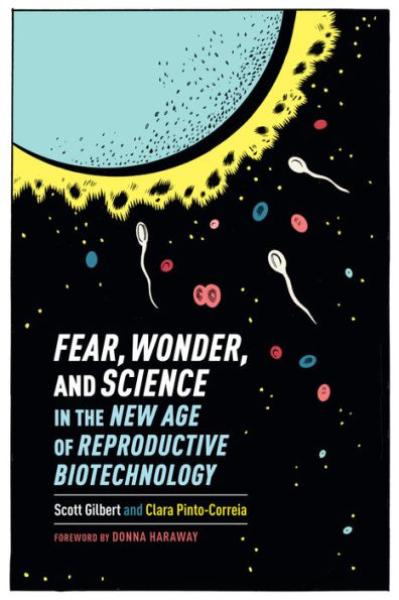Description
Fear, Wonder, and Science in the New Age of Reproductive Biotechnology first covers the most recent and well-grounded scientific conclusions about fertilization and early human embryology. It then discusses the reasons why some of the major forms of assisted reproductive technologies were invented, how they are used, and what they can and cannot accomplish. Most important, the authors explore the emotional side of using these technologies, focusing on those who have emptied their emotions and bank accounts in a valiant effort to conceive a child. This work of science and human biology is informed by a moral concern for our common humanity.
This book helps individuals make informed choices about in vitro fertilization, abortion, egg freezing, surrogacy, and other matters of reproduction. Scott Gilbert and Clara Pinto-Correia explain why some of the major forms of assisted reproductive technologies were invented, how they are used, and what they can and cannot accomplish.
An excellent addition to health, medical, and bioethics collections. Highly recommended. All readers.--Choice
Dynamically weaving hard-core scientific research and heart-wrenching ethnographic storytelling of infertility, Gilbert and Pinto-Correia deftly cast out the spells of our misinformed reproductive history and reveal the pros and cons of our ever-evolving technologies. With fascinating detail, this book sheds light on a more inclusive and awe-inspiring truth of how we, as humans, actually come into being -- a process more mutually collaborative then many of us have ever imagined. Replete with historic, philosophic, religious and sociological perspectives, each chapter seems to build one upon another, like pieces of a hologram allowing the reader to witness the greater whole, including the realistic challenges and ethical ramifications of these unstoppable reproductive technologies. This groundbreaking book is a deeply respectful compendium essential in our world today to gain conscious awareness, unveil ethical considerations, inspire reflective choices, and reignite the curiosity and awe of our existence.--Joyce Anastasia, author of Extraordinary Leadership During Extraordinary Times
Every book on science and its social uses should be like this one. But Fear, Wonder, and Science in the New Age of Reproductive Biotechnology is probably an unrepeatable marvel. To bring it to pass, a scientist with philosophical inclinations and literary flair has joined up with a novelist with scientific training and a moving and culturally resonant personal story. They have created what may be the most accessible source to date for how humans are made, how the process can be manipulated technologically, and how benign impulses can go awry in the face of biological and social complexities.--Stuart Newman, New York Medical College
This pathbreaking book is a milestone, giving us a new way of understanding human fertility, reproduction, and childbirth. Scott Gilbert and Clara Pinto-Correia's contrasting yet complementary perspectives will educate, enliven, delight, and inform any reader. The insights presented here will enable us to question, break, and move beyond the reigning contemporary paradigms of disempowerment, and find the true empowerment that both men and women so sorely need.--Steven Borish, California State University, East Bay
Scott Gilbert and Clara Pinto-Correia come to readers as whole persons in this unusual and much-needed book. . . . Each part of this rich tapestry of stories is woven in an acute consciousness of complex social, personal, and technical histories. Each part requires--as well as nurtures--emotional, intellectual, and sociohistorical intelligence.--from the foreword by Donna Haraway
Impressive in its breadth, Fear, Wonder, and Science in the New Age of Reproductive Biotechnology contains case studies, historical narratives, and ethical conundrums showcasing the advances in our understanding of the basic science of human fertilization and development. Correcting misconceptions that have permeated the mainstream infertility literature, Gilbert and Pinto-Correia write the kind of lucid explanations of these complex technological feats that have probably never reached this readership but should have a long time ago.--Katayoun Chamany, New School University
Product Details
- Columbia University Press Brand
- Aug 8, 2017 Pub Date:
- 0231170947 ISBN-10:
- 9780231170949 ISBN-13:
- 296 Pages
- 9.1 in * 6 in * 1.2 in Dimensions:
- 1 lb Weight:




